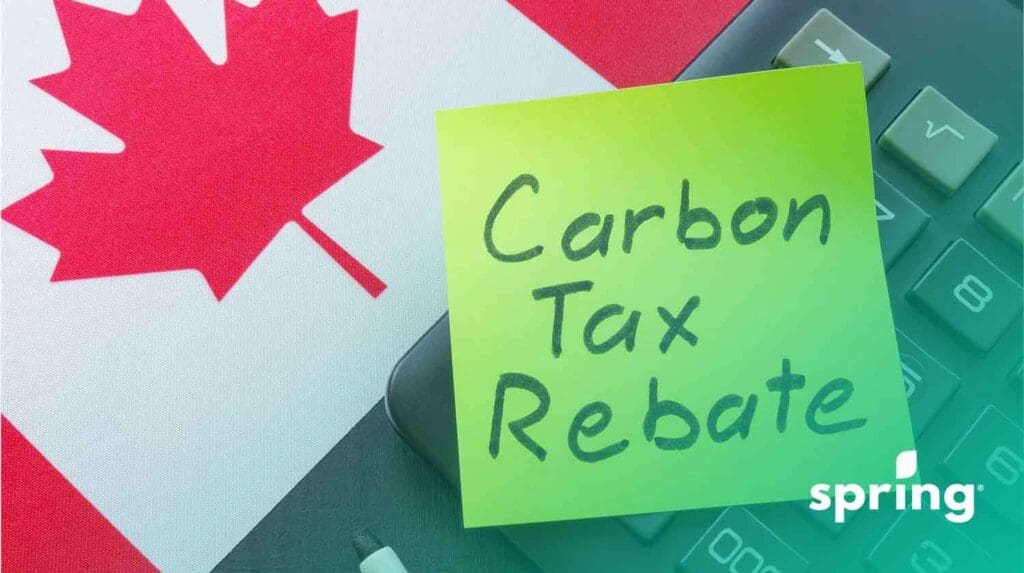Like it or not, credit cards are an essential piece of any financial puzzle. Sure, if used irresponsibly, they can be a bit risky and lead you into debt. But they’re also the most reliable method to build your credit history and maintain a good credit report. And good credit is required for a lot of critical things in your life, from getting a cell phone plan to renting an apartment.
Ironically, good credit is also required to get a credit card, which is a bit of a catch-22. So what do you do when you have no credit? Maybe you’re a student looking for your first credit card, or a new immigrant starting from scratch with no credit and wondering how to get a credit card.
Regardless of your situation, if you’re wondering how to get your first credit card even if you have no credit, you’re asking the right questions. It’s important to get your first credit card as soon as you can so you can begin to build your credit history as soon as you can. Once you have your card, consistently paying your balance on time will raise your credit rating and increase your approval odds for larger financial goals, such as financing a car or getting approved for a mortgage.
How to Get a Credit Card in Canada
Getting a credit card in Canada hinges on three main factors: Age, income, and credit history. If you don’t satisfy these, it can be a little more difficult to get approved for a first credit card.
Legally, you must be the age of majority in your province or territory to get a credit card on your own in Canada. That means you must be at least 18 in Alberta, Manitoba, Ontario, Prince Edward Island, Quebec, and Saskatchewan. In British Columbia, New Brunswick, Newfoundland, Nova Scotia, Northwest Territories, Nunavut, and the Yukon you must be 19 or older.
If you’re under the age of majority in your province or territory and need a credit card, you’ll need to be co-signed as an authorized user on someone else’s credit card, such as your parents.
Your lender will also want assurances you can repay the amounts you charge, so you’ll need to prove consistent you have income in order to successfully apply for a first credit card.

How to Get a Credit Card With No Credit
The final factor—good credit history—is often the most difficult hurdle to overcome, especially if you simply have no credit history at all. Luckily, there are multiple ways to get a first credit card even if you have no credit.
1. Student Credit Card
If you’re enrolled in a college or university, your best option is to apply for a student credit card from a bank or major credit card issuer. Because they’re designed specifically for students with little to no credit history, your approval odds are high. These cards typically carry high interest rates and offer next to no rewards, but they’re a great stepping-stone build your credit history and put you on the path to a better credit card.
2. Secured Credit Card
If you’re not a student with no credit history, consider applying for a secured credit card. With secured cards, you put down a deposit against the credit limit of the card. The lender holds this deposit in case you don’t make a payment. Capital One secured credit cards are an excellent option and can help you build your credit history right away.
3. Retail Store Credit Card
Another option for a first credit card is to apply for a retail or department store credit card. Store credit cards typically have higher approval odds than most other credit cards, making them a nice option for anyone with no credit history. There are downsides (high interest rates, you can only use these cards in the stores that issue them) but they’re another vehicle to build your credit history.
4. Become an Authorized User
Last but not least, you may want to consider being signed on as an authorized user to someone else’s credit card. This is common with parents and children under the age of 18. As an authorized user, the card’s activity will be reported on your credit report as well, so it’s important to understand the risks: If the other authorized user is late in making payments, this will also appear on your credit history.
How to Choose Your First Credit Card
When you’re choosing your first credit card, your choices might be limited by some of the factors explored above (age, income, credit history). As with any financial decision, it’s important to do your research and compare your options. Different credit cards come with different features, including interest rates, fees, and rewards.
Be on the lookout for credit cards that are explicitly marketed at people with bad credit. These usually carry extremely high annual fees and there’s really no reason to consider them. No matter what your credit situation is, a secured credit card is always a more preferable option.
Depending on your needs and income, you should also be cautious about the credit limit you accept. You may even want to have a lower limit that what you’re approved for. It can be easy to get carried away with paying for things on credit and losing sight of exactly how much money you have, and before you know it interest alone is eating up a giant portion of your income.
How to Use Your First Credit Card
Once you have your first credit card it’s important to practice good spending habits. The most significant benefit to having a credit card in the first place is to build your credit history, so it’s critical you to pay your balance in full consistently and on-time. Missing payments and continually over-spending are the two fastest ways to lower your credit rating and lower it fast.
Avoid this by only using it for small purchases you know you can afford. Paying your balance in full each month and on time is critical. To avoid missing payments, sign up for automatic payments if the option is available, or create recurring email or text notifications for yourself.
Also, credit utilization is a big factor with regards to your credit rating. As a rule of thumb, you should utilize no more than 30% of your credit limit. If your cards are maxed out or look close to maxed out, it could negatively impact your credit score.
Spring Financial serves Canadians facing all types of credit situations with practical personal finance advice and credit-building solutions. We also offer quick-and-easy secured and unsecured instalment loans to help you take those first steps to a better financial future. Apply today to see how we can help!








